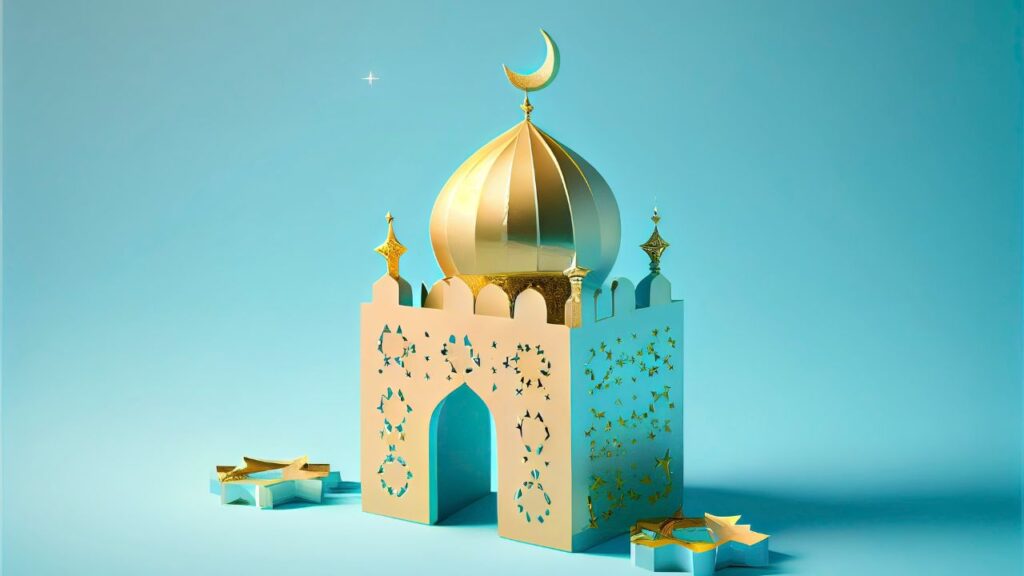When is Ramadan 2024?
Ramadan 2024: A Month of Devotion and Connection

Ramadan 2024 is expected to begin on the evening of Thursday, March 21, and will likely end on the evening of Saturday, April 20, subject to the sighting of the moon.
Is Ronaldo Muslim? Truth About His Religious Belief
Alhamdulillah Meaning in English
Introduction
As the Islamic lunar calendar advances, bringing with it the changing seasons and cycles of the moon, the sacred month of Ramadan arrives once again in the year 2024. Ramadan is a time of profound significance for Muslims worldwide, marked by fasting, prayer, self-reflection, and acts of charity. In 2024, Ramadan is anticipated to commence on the evening of March 23 and conclude on the evening of April 21, subject to the sighting of the moon. This month-long observance is not only a time of religious devotion but also a period for strengthening bonds within the Muslim community and fostering a deeper connection with Allah.
The Significance of Ramadan
Ramadan holds immense importance in Islam, as it commemorates the month during which the Quran, the holy book of Islam, was revealed to Prophet Muhammad (peace be upon him) by the Angel Gabriel. The Quran describes Ramadan as a time when the gates of Heaven are open, the gates of Hell are closed, and the devils are chained. Muslims view this month as an opportunity to purify their hearts, minds, and souls through acts of worship, fasting, and self-discipline.
Fasting and Spirituality
Fasting during Ramadan is one of the Five Pillars of Islam and is obligatory for all adult Muslims, with certain exemptions for individuals such as the elderly, pregnant or nursing women, and those with health conditions. The fast begins at dawn and ends at sunset each day. During this period, Muslims abstain from consuming food, drinking liquids, smoking, and engaging in intimate relations. The physical act of fasting serves as a means to cultivate self-control, empathy for the less fortunate, and spiritual growth.
Beyond abstaining from physical needs, Muslims are encouraged to engage in increased prayers and recitation of the Quran during Ramadan. The Night of Decree (Laylat al-Qadr), which falls within the last ten days of the month, is believed to be a night of immense blessings and mercy. Worship and prayers on this night are believed to be better than those of a thousand months.

Community and Unity
Ramadan is a time of heightened community involvement and solidarity. Muslims come together to break their fasts each evening with a meal called iftar, often starting with the eating of dates and followed by a larger meal. Sharing these moments with family, friends, and neighbors fosters a sense of unity and strengthens social bonds. Additionally, many mosques organize communal iftar events to accommodate those who may not have the means to prepare their own meals.
Furthermore, Ramadan encourages acts of charity and giving. Muslims are encouraged to give to those in need through the practice of Zakat (charitable giving) and Sadaqah (voluntary charity). The focus on helping others reinforces the sense of empathy and compassion that lies at the core of Islamic teachings.
Challenges and Rewards
While Ramadan is a time of spiritual renewal and devotion, it also presents challenges, especially for individuals living in non-Muslim-majority countries where daily routines may not be tailored to the fasting schedule. Balancing work, school, and family responsibilities with fasting and additional prayers can be demanding. However, these challenges are often seen as opportunities to demonstrate dedication and perseverance.
The Quran promises abundant rewards for those who observe Ramadan with sincerity and devotion. In a famous hadith (teachings of the Prophet Muhammad), it is said that every good deed performed during this month is multiplied manifold. Muslims believe that by seeking Allah’s pleasure through acts of worship, fasting, and self-improvement, they can attain spiritual elevation and draw closer to their Creator.
Conclusion
As Muslims around the world prepare for the arrival of Ramadan in 2024, there is a palpable sense of anticipation for the blessings, opportunities, and spiritual growth that the month brings. Beyond the physical act of fasting, Ramadan is a time of inner transformation, community bonding, and acts of benevolence. Through fasting, prayer, and reflection, Muslims seek to renew their connection with Allah, purify their hearts, and strengthen their sense of unity with their fellow believers.
In a world often marked by division and discord, Ramadan serves as a reminder of the power of faith to bring people together in pursuit of a common purpose. As the crescent moon heralds the beginning of another Ramadan, Muslims embark on a journey of self-discovery, humility, and gratitude, striving to embody the teachings of Islam and carry the spirit of Ramadan into the remainder of the year.
Faqs About Ramadan 2024
What is Ramadan 2024?
Ramadan is the ninth month of the Islamic lunar calendar and is considered the holiest month for Muslims. It is a period of fasting, prayer, reflection, and community for Muslims around the world.
When does Ramadan 2024 start and end?
Ramadan 2024 is expected to begin on the evening of Thursday, March 21, and will likely end on the evening of Saturday, April 20, subject to the sighting of the moon. These dates may vary depending on the lunar calendar and local moon sighting practices.
How long does the fasting last each day during Ramadan 2024?
The duration of fasting during Ramadan varies based on the geographical location and time of year. On average, fasting typically lasts from dawn (Fajr prayer) until sunset (Maghrib prayer), which is roughly 12 to 16 hours, depending on where you are in the world.
Can children and elderly individuals fast during Ramadan 2024?
Children, elderly individuals, pregnant or nursing women, travelers, and those with certain medical conditions are exempt from fasting. However, children are often encouraged to gradually participate in fasting as they grow older, and elderly individuals can provide charity (fidyah) in place of fasting.
What is Suhoor and Iftar?
Suhoor is the pre-dawn meal that Muslims consume before the Fajr prayer and the beginning of the fasting period. Iftar is the evening meal that breaks the fast after the Maghrib prayer. These meals hold special importance during Ramadan and are often shared with family and friends.
Are there any additional acts of worship during Ramadan?
Yes, apart from fasting, Muslims engage in increased acts of worship during Ramadan. These include increased recitation of the Quran, extra prayers (Taraweeh), supplications (dua), and acts of charity (sadaqah and zakat).
Is it obligatory for all Muslims to fast during Ramadan?
Fasting during Ramadan is one of the Five Pillars of Islam and is obligatory for all adult Muslims who are physically and mentally capable. However, those who are exempt due to health or other reasons are not required to fast.
What is Laylat al-Qadr?
Laylat al-Qadr, often translated as the “Night of Decree” or the “Night of Power,” falls within the last ten days of Ramadan, with the most common belief being that it falls on one of the odd nights, like the 21st, 23rd, 25th, 27th, or 29th night. It is believed to be the night when the Quran was first revealed to Prophet Muhammad. Worship and prayers on this night hold immense significance.
How do Muslims celebrate the end of Ramadan?
The end of Ramadan is celebrated with a festival called Eid al-Fitr. Muslims gather for pecial prayers, give zakat al-fitr (charity), and share festive meals with family and friends. It is a time of joy, gratitude, and community.
How can non-Muslims show respect during Ramadan?
Non-Muslims can show respect during Ramadan by being aware of fasting hours and refraining from eating, drinking, or smoking in the presence of fasting Muslims. Additionally, offering Ramadan greetings and being understanding of the significance of this month demonstrates cultural sensitivity.





